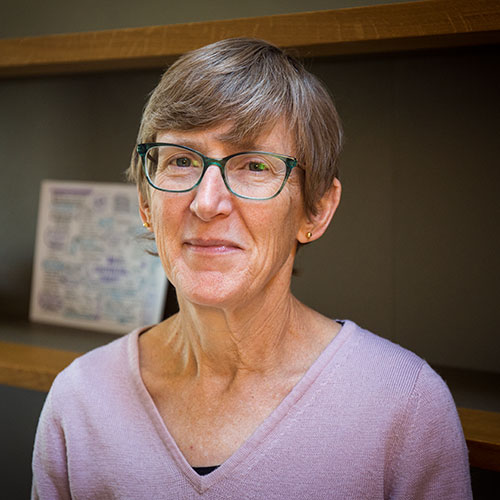
Susan Clayton to speak on virtual panel focusing on emotions related to climate change

Susan Clayton, the Whitmore-Williams Professor of Psychology, will be speaking on the virtual panel “Leveraging Emotions: Climate Change and the Power in Feeling” co-hosted by The Commons and the Center for Compassionate and Sustainable Communities at the University of Kansas on April 19. The panel brings together “leaders in the field of climate change and mental health” to discuss “what it means to feel in response to climate change,” according to the university’s website. This panel also features Britt Way, a prominent researcher who is the author of the book “Generation Dread,” and Joonmo Kang, an assistant professor of social welfare at the University of Kansas, and will be moderated by Melinda Lewis, an associate professor of practice in the School of Social Welfare at the University of Kansas.
Emily Ryan ’05, who is the director of The Commons and was an art history major at Wooster, is organizing the event. “The work of The Commons is to bring together cross-disciplinary perspectives and ways of knowing to help illuminate our understandings of nature and culture,” Ryan said. “A topic that is central to much of what we do is climate change—noting that this is a global crisis, and one that can’t be solved by the perspective of one kind of knowledge alone. This event brings together the themes of wellness and mental health with those of climate change and human response to it.”
Ryan said that her interdisciplinary education at Wooster prepared her well for her work at The Commons. “I was stretched in so many of the fields I was studying and had great relationships with several professors in different departments,” she said. “That is very much a core component of my work at The Commons—developing relationships across disciplines, finding common curiosities they inspire, and bringing people together in dialogue and around research possibilities to explore them.”
Ryan, who took a class with Clayton when she was a student at Wooster, invited Clayton to speak because of her work on climate change and psychology. “One of my areas of research is how people are affected by the natural environment and by changing environmental conditions, including perceptions of climate change,” Clayton said. “I am also studying how to better prepare people to be psychologically resilient in the face of climate change.”
Clayton has edited or authored five books, the most recent being “Psychology and climate change: Human perceptions, impacts, and responses.” With Bryan Karazsia, a professor of psychology at Wooster, Clayton also developed the Climate Change Anxiety Scale which has been used around the world to study emotional responses to climate change. She’s commented on the idea of “eco-anxiety” in the New York Times and was a lead author of the chapter on “Health, Wellbeing, and the Changing Structure of Communities,” in the Sixth Assessment Report published by the Intergovernmental Panel on Climate Change (IPCC), a body of experts convened by the United Nations, about the perils of climate change and the negative impacts felt around the world.
“For years, I’ve been reading about environmental justice, climate change, and the many dimensions that surround action and inaction in response to what we know. One common thread across this reading has been that the writers all cite Susan Clayton,” Ryan said. “[The panelists] will allow us to better understand emotion, and that it can be harnessed as a tool, something to empower — rather than just a debilitating force — in a way that lifts communities and empowers individuals.”
Register for the virtual event here.
Posted in News on March 16, 2023.
Related Posts
Related Areas of Study
Psychology
Do research, work with faculty mentors, and tailor a psychology program to your interests
Major MinorEnvironmental Studies
Natural sciences, social sciences, and humanities courses combine for those who want to be part of environmental solutions
Major Minor

